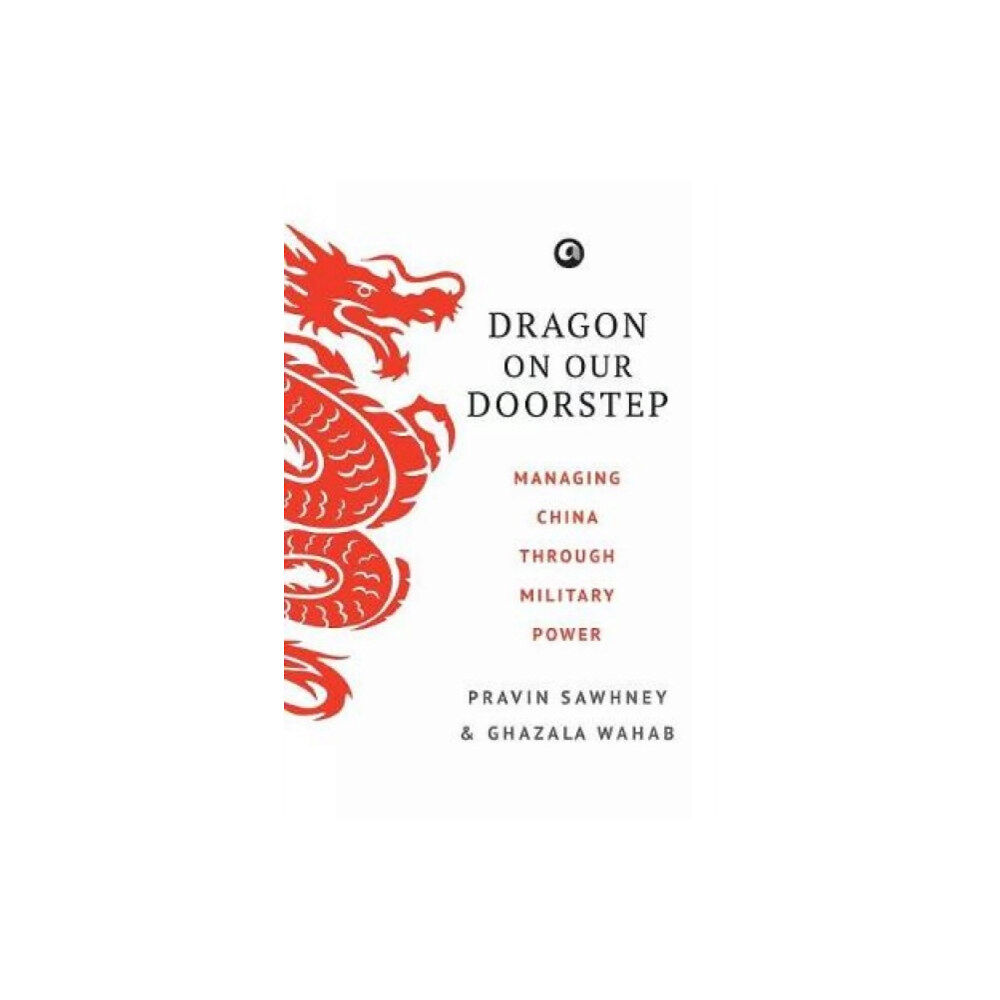- Hem
- Böcker
- Kurslitteratur
- Samhälle & Politik
- Dragon on Our Doorstep (inbunden, eng)

Dragon on Our Doorstep (inbunden, eng)
India might not admit it, but should it find itself involved in a border war with China it willose. Apart from superior military power, clos...
499 kr
Bara 2 kvar
Skickas inom 4 - 5 vardagar
- Fri frakt
Just nu: Fri frakt på alla köp
Snabb leverans
Alltid låga priser
Produktbeskrivning
India might not admit it, but should it find itself involved in a border war with China it willose. Apart from superior military power, close coordination between the politicaleadership and the military and the ability to take quick decisions, China has potent anti-satellite and cyber warfare capabilities.
Even more shockingly, regardless of popular opinion, India today is not even in a position to win a war against Pakistan. This has nothing to do with Pakistan’s nuclear weapons. It is because while India has been focused on building military force (troops and materiel needed to wage war) Pakistan has built military power (learning how to optimally utilize its military force).
In thisies the difference betweenosing and winning. Far from being the strong Asian power of its perception, India could find itself extremely vulnerable to the hostility of its powerful neighbors. In Dragon On Our Doorstep, Pravin Sawhney and Ghazala Wahab analyse the geopolitics of the region and the military strategies of the three Asian countries to tell us exactly why India is in this precarious position and how it can transform itself through deft strategy into aeading power.The most populous countries and fastest growing economies in the world—India and China—have cultural and economic relations that date back to the second century bc.
But over the years, despite the many treaties and agreements between the two nations, border clashes (including the disastrous 1962 war) and disagreements over Tibet and Jammu and Kashmir have complicated the relationship. For decades China kept aow profile. However, since 2008, when it was recognized as an economic power, China has become assertive.
Today, this Himalayan balancing act of power is clearly tilted towards China, in whose view there is room for only one power in Asia. In this rise, Pakistan has emerged as China’s most trusted and crucial partner. The partnership between China and Pakistan, whether in terms of military interoperability (ability to operate as one in combat), or geostrategic design (which is unfolding through the wide-sweeping One Belt One Road project), has serious implications for India.
The best that India can do is try and manage the relationship so that the dragon’s rise is not at the cost of India.
Even more shockingly, regardless of popular opinion, India today is not even in a position to win a war against Pakistan. This has nothing to do with Pakistan’s nuclear weapons. It is because while India has been focused on building military force (troops and materiel needed to wage war) Pakistan has built military power (learning how to optimally utilize its military force).
In thisies the difference betweenosing and winning. Far from being the strong Asian power of its perception, India could find itself extremely vulnerable to the hostility of its powerful neighbors. In Dragon On Our Doorstep, Pravin Sawhney and Ghazala Wahab analyse the geopolitics of the region and the military strategies of the three Asian countries to tell us exactly why India is in this precarious position and how it can transform itself through deft strategy into aeading power.The most populous countries and fastest growing economies in the world—India and China—have cultural and economic relations that date back to the second century bc.
But over the years, despite the many treaties and agreements between the two nations, border clashes (including the disastrous 1962 war) and disagreements over Tibet and Jammu and Kashmir have complicated the relationship. For decades China kept aow profile. However, since 2008, when it was recognized as an economic power, China has become assertive.
Today, this Himalayan balancing act of power is clearly tilted towards China, in whose view there is room for only one power in Asia. In this rise, Pakistan has emerged as China’s most trusted and crucial partner. The partnership between China and Pakistan, whether in terms of military interoperability (ability to operate as one in combat), or geostrategic design (which is unfolding through the wide-sweeping One Belt One Road project), has serious implications for India.
The best that India can do is try and manage the relationship so that the dragon’s rise is not at the cost of India.
| Format | Inbunden |
| Omfång | 488 sidor |
| Språk | Engelska |
| Förlag | Aleph Book Company |
| Utgivningsdatum | 2017-01-09 |
| ISBN | 9789382277262 |
Specifikation
Böcker
- Format Inbunden
- Antal sidor 488
- Språk Engelska
- Utgivningsdatum 2017-01-09
- ISBN 9789382277262
- Förlag Aleph Book Company
Leverans
Vi erbjuder flera smidiga leveransalternativ beroende på ditt postnummer, såsom Budbee Box, Early Bird, Instabox och DB Schenker. Vid köp över 399 kr är leveransen kostnadsfri, annars tillkommer en fraktavgift från 39 kr. Välj det alternativ som passar dig bäst för en bekväm leverans.
Betalning
Du kan betala tryggt och enkelt via Avarda med flera alternativ: Swish för snabb betalning, kortbetalning med VISA eller MasterCard, faktura med 30 dagars betalningstid, eller konto för flexibel delbetalning.
Specifikation
Böcker
- Format Inbunden
- Antal sidor 488
- Språk Engelska
- Utgivningsdatum 2017-01-09
- ISBN 9789382277262
- Förlag Aleph Book Company
